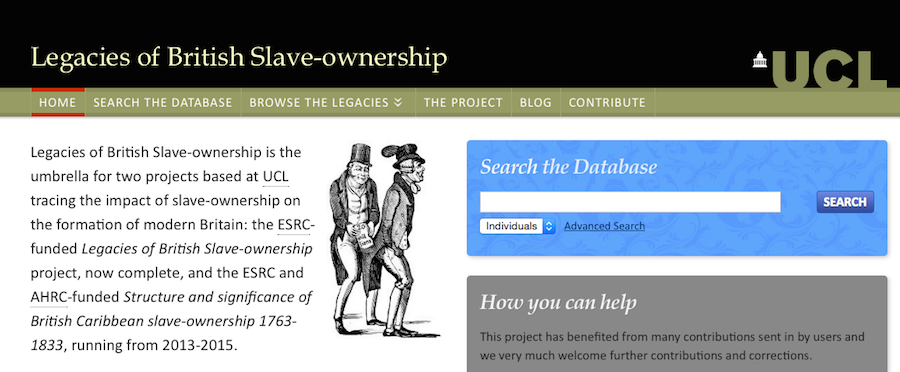The history of British slave ownership has been buried: now its scale can be revealed

Britain’s Forgotten Slave Owners, the first of two episodes, presented by David Olusoga, will be broadcast on Wednesday on BBC2. Click here for the Legacies of British Slave Ownership Database
Slave ownership, it appears, was far more common than has previously been presumed. Many of these middle-class slave owners had just a few slaves, possessed no land in the Caribbean and rented their slaves out to landowners, in work gangs.These bit-players were home county vicars, iron manufacturers from the Midlands and lots and lots of widows. About 40% of the slave owners living in the colonies were women. Then, as now, women tended to outlive their husbands and simply inherited human property through their partner’s wills.
The geographic spread of the slave owners who were resident in Britain in 1834 was almost as unexpected as the gender breakdown. Slavery was once thought of as an activity largely limited to the ports from which the ships of the triangular trade set sail; Bristol, London, Liverpool and Glasgow. Yet there were slave owners across the country, from Cornwall to the Orkneys. In proportion to population, the highest rates of slave ownership are found in Scotland.
The T71 files have been converted into an online database; a free, publicly available resource.
During the production of a documentary series about Britain’s slave owners for the BBC, made in partnership with UCL, all of my colleagues who learned of the existence of the database found themselves compelled to enter their own family names. Those whose surnames flashed up on screen experienced, like Ben Affleck, a strange sense of embarrassment, irrespective of whether the slave owners in question were potentially ancestors.